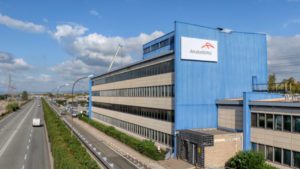
PJSC ArcelorMittal Kryvyi Rih (Dnipropetrovsk region) in 2018-2019 spent about UAH 320 million on the program to restore 27 locomotives.
According to a company press release, domestic and foreign analogues were used instead of Russian components during the overhaul of locomotives, thereby neutralizing Russian sanctions regarding the ban on the supply of spare parts and engines for diesel locomotives to Ukraine.
According to the press service, the plant has one of the largest railway fleets in the metallurgical complex: 172 locomotives (126 for servicing metallurgical production, 46 for mining). A few years ago, the company adopted an import substitution program. One of the main partners was Mykolaiv Diesel Locomotive Repair Plant, which established production cooperation with a number of Ukrainian and foreign manufacturers of various railways equipment.
Thanks to joint developments, Mykolaiv plant started installing diesel engines of well-known world companies, namely U.S.-based Cummins, UK-Belgian ABC Corporation, and others, on locomotives. In addition, the latest Heinzmann engine control systems (Germany), a rotary vane compressor jointly with the Italian company Mattei, a modern traction unit of alternating current (Electrotyazhmash), a microprocessor-based locomotive control system, etc. were installed on the machines.
Thanks to the measures taken, the plant in 2018–2019 got the opportunity to restore 11 diesel locomotives, in particular with the replacement of engines and deep modernization. In addition, 16 more cars were repaired on the basis of its two diesel locomotive repair depots.
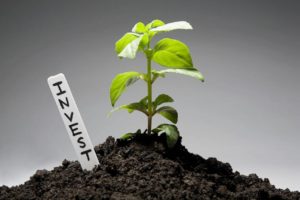
The agricultural division of the Epicenter K Group has launched two new silos and expanded the capacities of two more silos in Vinnytsia and Khmelnytsky regions and the number of own silos grew from six to eight and their total storage capacities expanded to over 800,000 tonnes.
According to the group’s press release, two new silo complexes were launched in Vinnytsia region: Vendychany (Mohyliv-Podilsky district) with a storage capacity of 120,000 tonnes and Vapniarka (Tomashpil district) with a storage capacity of 200,000 tonnes.
In addition, the reconstruction of the Vinnytsia elevator was completed, as a result of which its storage capacity was increased to 168,000 tonnes, the capacity of the Zakupne silo complex (Khmelnytsky region) also increased by 60,000 tonnes – after reconstruction, the enterprise can dry and store 105,000 tonnes of grain.
The investments of Epicenter K in the development and reconstruction of the silo business amounted to about UAH 3 billion.
According to the group, in the current season the new and upgraded silos of the company plan to accept about 50,000 tonnes of grain from external depositors for refinement and storage.
The Epicenter K said that the construction of a new silo in Vinnytsia with a capacity of 208,000 tonnes recently began. Work on the completion of the third phase of the Zakupne silo complex with a capacity of 184,000 tonnes is underway, as well as the restructuring of two more enterprises – Pererobnyk in Kyiv region, which storage capacities will expand by 105,000 tonnes, and Nemyriv silo complex in Vinnytsia region, where grain storage volumes will increase by 104,000 tonnes.
After the implementation of all projects, the silo grain storage capacity until the end of the 2019/2020 agricultural year will expand to 1 million tonnes. The company plans by the end of the 2020/2021 agricultural year to increase the company’s grain storage capacity to 2 million tonnes.
The total cost of projects for the development and reconstruction of silo complexes is estimated at UAH 4.6 billion.
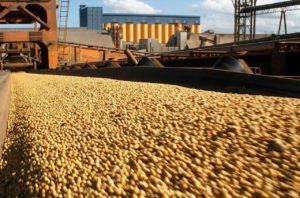
The group of companies Ristone Holdings has invested EUR 2 million in construction of a second phase of the oilseed crushing complex of Ristone Oil LLC (Dnipropetrovsk region), the group has reported on its Facebook page.
According to the report, the company concluded a contract with Germany’s Convex International GmbH for the supply of drying and cleaning equipment from Petkus (Germany), transport equipment from Riela (Germany), four main and two auxiliary grain silos with a capacity of 20,000 cubic meters from Symaga firm (Spain).
“This will allow us to keep the quality at the highest level and increase the volume of the daily processing rate by more than two times, while minimizing emissions of pollutants,” the group said.
The main activity of the complex is the deep processing of oilseeds. Currently, Ristone Oil produces sunflower oil, granulated meal, expanded cake, and fuel pellets from production waste.
In the future, it is envisaged the possibility of placing a line of hydration and drying of phosphatides in the oil press workshop with a warehouse for their storage and subsequent loading to vehicles.
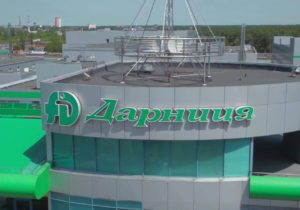
Darnitsa pharmaceutical company in 2018 invested about EUR3.5 million in development and research (R&D), Dmytro Shymkiv, the head of the board of directors of Darnitsa Group, has said.
“Every year we invest about 10% of gross income in development and research. In 2018 the amount of such investments totaled EUR 3.5 million. In total, Darnitsa invested about EUR 200 million in development,” he said at a press conference in Kyiv.
Shymkiv said that in 2020-2022 Darnitsa plans to conduct 9-12 drug bioequivalence studies.
Since 2016, the company has completed eight such studies.
According to him, the development strategy of Darnitsa provides for three priority areas of the product portfolio: cardiology, neurological drugs, and pain therapy.
In 2019, the pharmaceutical company plans to bring 11 brands to the market, in 2020 some 14. In 2018, Darnitsa brought ten brands to the market.
Currently, the company’s product portfolio comprises 250 types of finished medicines.
Darnitsa pharmaceutical company is one of the ten largest pharmaceutical manufacturers in Ukraine and the top ten largest hospital suppliers. Its ultimate beneficiary is Hlib Zahoriy.
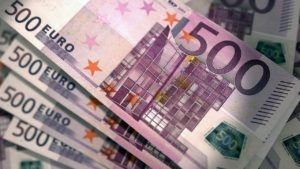
Nordic Environment Finance Corporation (NEFCO) since 2010 has implemented 243 municipal and private energy efficiency projects in Ukraine, and the total investment has reached EUR 226 million.
According to NEFCO Managing Director Trond Moe, in particular, 179 projects worth EUR 119 million were implemented in the municipal sector and 58 projects worth EUR 89 million in the private sector. In addition, six more projects were implemented with financial institutions for a total of EUR 18 million.
Moe said at a meeting with reporters on Thursday in Kyiv that the largest NEFCO office after its head office in Helsinki is located in the Ukrainian capital.
Ukraine is now the most important country for NEFCO. But in general, the corporation worked on projects in 80 countries, completing more than 1,300 projects. Last year, NEFCO implemented 124 new projects, most of them in Ukraine, he said.
All these projects, according to Moe, contribute to Ukraine achieving an increase in the share of renewable energy of integrated consumption, while reducing CO2 emissions.
By providing financing and sharing risks, NEFCO makes it possible for Northern European companies to invest in Ukraine and at the same time support Ukraine in the transition to clean and sustainable energy, the NEFCO managing director said.
The company plans to continue close cooperation with Ukraine regarding the implementation of energy efficiency projects and the reduction of CO2 emissions.
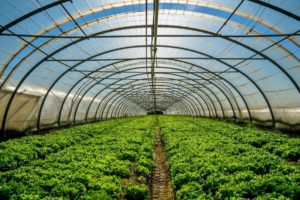
T.B.Fruit group of companies, one of the largest fruit and berry processors in Ukraine, has launched a pectin plant in Horodok (Lviv region) with investments of EUR25 million, founder of T.B.Fruit Group Taras Barschovsky has said.
“We’ve started production of pectin. The new plant that we had been building two years has been launched. The production capacity is 3,000 tonnes of apple pectin per year,” he wrote on his Facebook page.
According to him, 40,000-45,000 tonnes of citrus and apple pectin are produced in the world today.
“This ‘club’ of manufacturers consists of only seven companies. Among them are CP Kelco, Cargill, DuPont, H&Fox … And only two of them produce apple pectin. T.B.Fruit became the third producer of apple pectin in the world,” Barschovsky said.
According to him, investments in the plant are estimated at EUR25 million.
T.B.Fruit is a vertically integrated international group of companies with a closed production cycle (growing raw materials-processing-transportation).